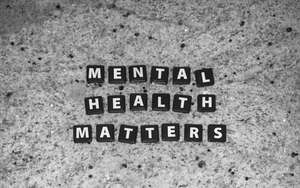
Kenya Ushers in a New Era for Mental Health with Groundbreaking Legislative Reforms
Reading Time: 3min
NAIROBI, Kenya – [October 25, 2024] – In a landmark move for public health and human rights, Kenya is poised to fundamentally reshape its approach to mental wellness with the recent passage of the Mental Health (Amendment) Bill, 2024, and the operationalization of the Mental Health Parity Act.
This legislative double-act represents the most significant update to the country's mental health framework since the Mental Health Act of 1989, signaling a decisive shift from a system historically focused on institutionalization to one centered on community-based care, rights protection, and equitable access.
From Lunacy to Liberty: Repealing Archaic Laws
A cornerstone of the reform is the long-awaited repeal of the colonial-era "Lunacy Act," a term widely condemned as stigmatizing and outdated. The new amendments, which received Presidential Assent on September 10, 2024, expunge this language from all legal statutes, replacing it with person-first terminology that affirms the dignity and rights of individuals.
"The word 'lunatic' has no place in a modern, compassionate society," stated Dr. Wanjiku Mbugua, a leading psychiatrist and member of the task force that advised on the bill. "This is more than semantics; it's a symbolic and practical step toward dismantling the deep-seated stigma that has prevented countless Kenyans from seeking help."
The Push for Parity: Equating Mental and Physical Health
Perhaps the most impactful change for many Kenyans is the full enforcement of the Mental Health Parity Act, which officially came into effect on July 1, 2024. This law mandates that all public and private health insurers provide coverage for mental health conditions that is equal to that for physical health conditions.
"This ends the discrimination where someone could get comprehensive cover for a broken leg but almost nothing for debilitating depression or anxiety," explained a representative from the Insurance Regulatory Authority. "We are working with insurers to ensure full compliance by the deadline, making therapy, counseling, and psychiatric medication financially accessible to a much wider population."
Decentralizing Care and Protecting Rights
The amendments also empower county governments to establish and fund integrated mental health services within primary healthcare centers. The legislation sets a deadline of June 30, 2025, for all 47 counties to have submitted their implementation plans to the National Mental Health Directorate.
Furthermore, the legislation strengthens the Mental Health Tribunal, transforming it into a more robust body with the power to swiftly review cases of involuntary admission. The new Tribunal guidelines are scheduled to be published by January 31, 2025.
The Road Ahead: Implementation and Awareness
While the legislative framework is now in place, experts agree that the real work is just beginning. Challenges remain, including securing adequate budgetary allocations, training a sufficient workforce of community health workers, and rolling out nationwide public awareness campaigns.
"The laws are a powerful map, but now we must build the roads," said Amina Nzomo, founder of the grassroots advocacy group MindTheMap Kenya. "Our focus now is on ensuring every Kenyan knows their rights and that these policies translate into tangible support in our villages, towns, and cities. The conversation has been officially changed by law; now we must change it in hearts and minds."
These developments mark a critical milestone, positioning Kenya as a growing leader in mental health policy within Africa and offering a new blueprint for hope, dignity, and recovery for millions.

















